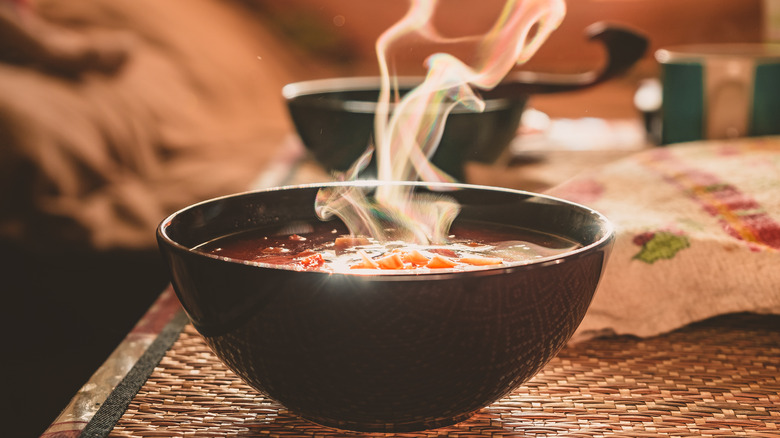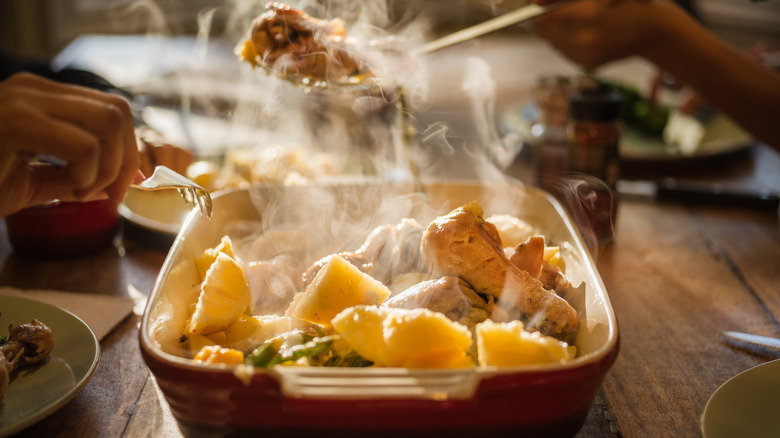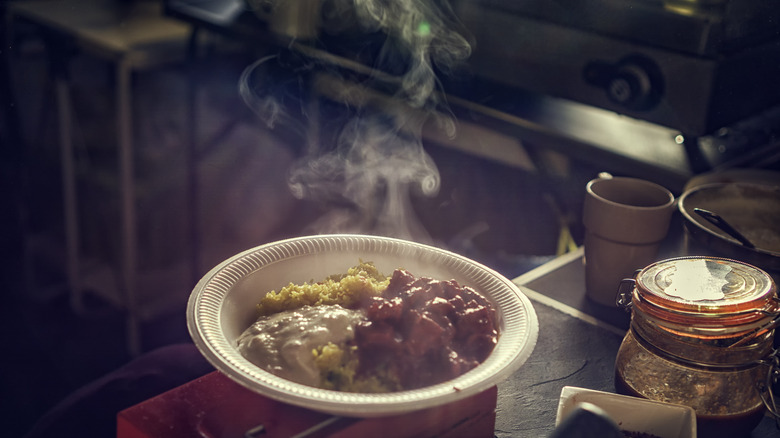It's Actually A Mistake To Eat Your Food Piping Hot
Perhaps you hear "you shouldn't eat food that's piping hot," and your first thought is "well yeah, of course, you'll burn your tongue." And that's true, but there's more — also, sometimes the burn risk isn't enough to deter your friend from stuffing a steaming forkful into their mouth anyway. But when food is too hot, it's actually more difficult to taste, and you lose some flavor.
It's likely that humans evolved to enjoy hot food over cold food because cooking food kills harmful bacteria and makes it safer. However, when food is too hot, tastebuds have a tendency to dull the taste because the burning sensation is overpowering it. While it's not entirely clear why this happens, it might be a defense mechanism to deter you from enjoying food that's dangerous enough to burn you, via The Guardian. It's uncommon to permanently damage your taste buds, because your body regenerates them every two weeks. However, if you burn your mouth, it can last several days before your tongue's back to normal — depending on your spice tolerance, it's possible to similarly irritate your tongue with spicy food.
Give it a rest
Lots of different foods benefit from being left alone for a little while once they're out of the oven. For example, when you let freshly cooked meat cool off, you're allowing it to finish "carry-over cooking," where heat inside the food is still cooking the meat. Letting meat rest also gives it time for the juices to rise up through the muscle fibers, so nothing leaks when you cut it open.
Letting your food rest applies to more than just meat. Grains such as rice benefit from sitting out after cooking, so they can absorb the remaining water that they were cooked in (you should cover the rice while it's sitting out to keep the steam inside). Freshly baked pies bread should be left to cool, because hot bread is basically still undercooked and will have a sticky texture. Cookies and cupcakes also take several minutes to settle so they'll be less likely to fall apart. If any of these aforementioned pastries has filling, then cutting them open too quickly can turn that filling runny when it should be gooey.
Just right versus too hot
Remember that you don't need to let your food get cold — just don't eat it while it's still too hot. There's a "Goldilocks" temperature range of not too hot, and not too cold where you should be eating most foods. Just like extra hot food dulls your tastebuds, food that's too cold can similarly numb taste. But it does depend on the food. Our tastebuds seem to register bitter and sweet flavors better at higher temperatures, which is why melted ice cream tastes unpleasantly sweet compared to chilled ice cream. This involves the way specific taste receptors in your mouth respond to specific proteins, but again, once it reaches too high a temperature, your tastebuds numb everything.
If you do bite into a slice of pizza that's too hot, a little bit of honey or sugar can relieve pain and cool the burn. Coating your tongue in something cool, especially ice or cold milk, can also remedy an aching tongue from a slightly-too-hasty eater.


